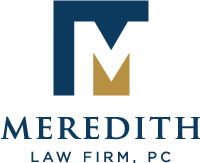If you are a business owner then this valuable asset must be considered when it comes to your estate planning. Today we will take a look at Robert Client who is the sole owner of a business and help him determine what he needs to think about when it comes to his estate planning.
Two Options: Keep it or Sell it
First, Robert needs to identify his goals for the business upon his retirement or death; essentially he has two choices. Does he want it to remain in his family for his spouse or children? Or, does he want to sell his interest in the business and use the money to benefit his family?
If he wants it to remain in his family he has a few other questions to think about. Do all of the family members participate in the business or just a few? Who will run the business; his wife, Cindy, or his children? What if only one child participates while the others have no interest in it; does it all go to the child who works in the business and if yes, does he do anything for the other children? What if none of the children participate in it, or even want it?
If he wants to sell his interest, does he have any key employees who may want to purchase it? If not, when he sells he will need to look for a third party who has no previous history with the business. Finally, when will it be sold; while Robert is alive or upon his passing?
What is it worth?
Next, Robert needs to know that the value of the business will be included in his total estate. This brings up another consideration; if he is going to sell it, how much is the business worth? This is where it is important to value the business by a qualified business valuation expert. This person will help Robert identify a price for any potential buyers. The value is also important when it comes to evaluating whether he may have an estate tax issue.
Sole Proprietorship or an LLC
Ideally, Robert is not operating his business as a sole proprietorship but rather as an LLC. And, let’s assume Robert has also hired an attorney to create an operating agreement for the LLC. The operating agreement describes how the business will be managed, how the money will be handled and how the owner’s interest will be transferred upon the death of the owner or the sale of the business. If the operating agreement is well drafted it will dictate how Robert’s interest will pass to his family or to any potential buyers.
If Robert were to have a business partner, then the operating agreement may contain some buy-sell provisions that will give instructions on how Robert’s interest may be sold to his business partner. Sometimes the buy-sell agreement is a separate document.
Additionally, Robert needs to know that if he has a will based estate plan then probate will be necessary. Probate is a public process and it may be necessary to disclose the value of the business during the process. I have found that most business owners prefer to keep their affairs private and therefore they use a Revocable Living Trust in place of a will.
